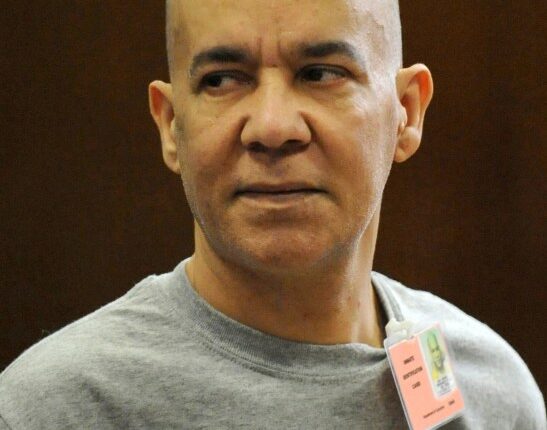Share this @internewscast.com

Prosecutors in New York have announced the possibility of appealing to the U.S. Supreme Court to reinstate a murder conviction linked to the 1979 disappearance of 6-year-old Etan Patz. This perplexing case remained unsolved with no arrests for decades.
The conviction of Pedro Hernandez, a former store clerk identified as a suspect over 30 years following the disappearance of the young New York City student, has been overturned by a federal appeals court. The court has ordered his release unless he is retried “within a reasonable period.”
Prosecutors asked the appeals court Friday to hold off sending the case back to a lower-level federal judge to set a retrial date.
The Manhattan District Attorney’s Office noted that the kidnapping and murder of Etan Patz stands as one of the most notorious crimes in recent U.S. history, and the recent court decision disrupts a conviction that had been validated nearly a decade ago.
The prosecutors highlighted the presence of “substantial legal questions” and indicated they are considering submitting a petition to the Supreme Court in the coming fall.
Hernandez’s lawyers said they would oppose prosecutors’ request to put the case on hold while they contemplate an appeal.
One of Hernandez’s defense attorneys, Edward Diskant, expressed skepticism, stating there’s no valid ground “to ask the Supreme Court to revisit –- let alone reverse” the appellate court’s decision.
Hernandez already has been tried twice — his 2017 conviction came after a prior jury couldn’t reach a verdict.
Now 64, he has been serving a sentence of 25 years to life in prison.
Etan vanished while making the short journey to his school bus stop. He became one of the initial missing children to have his image featured on milk cartons, and the distress of his parents contributed to significant changes in how missing-child cases were handled by U.S. law enforcement. Etan’s case, among others, eventually led to parents becoming increasingly cautious about their children’s safety.
No trace of Etan was ever found. After many years, his parents eventually had him declared legally dead.
Investigators scoured the city, and even overseas, for leads. But no arrests were made until 2012, when police got a tip that Hernandez — who worked in Etan’s neighborhood when the boy was last seen — had made remarks in the ensuing years about having harmed or killed a child in New York.
Hernandez then told police that he had offered Etan a soda to lure him into the basement of the shop where Hernandez worked. The suspect said he then choked the boy and put him, still alive, in a box and left it with curbside trash.
Hernandez’s lawyers say he confessed falsely because of a mental illness that sometimes made him hallucinate. The attorneys emphasized that the admission came after police questioned him for seven hours without reading him his rights or recording the interview. Hernandez then repeated his confession on tape, at least twice.
The trials happened in a New York state court, but the Hernandez appeal eventually wound up in federal court.
“The high cost of federally invalidating a state-court conviction is especially pronounced in this case,” prosecutors wrote.
At issue was the state trial judge’s response to jurors’ questions about whether they had to disregard the recorded confessions if they found the first, unrecorded one was invalid.
The judge said no. The appeals court said the jury should have gotten a more thorough explanation of its options, which could have included disregarding all of the confessions.
Prosecutors argue that the confessions were freely given, and that the appeals court inappropriately applied a federal legal rule when assessing the state court’s handling of the jury note.

















